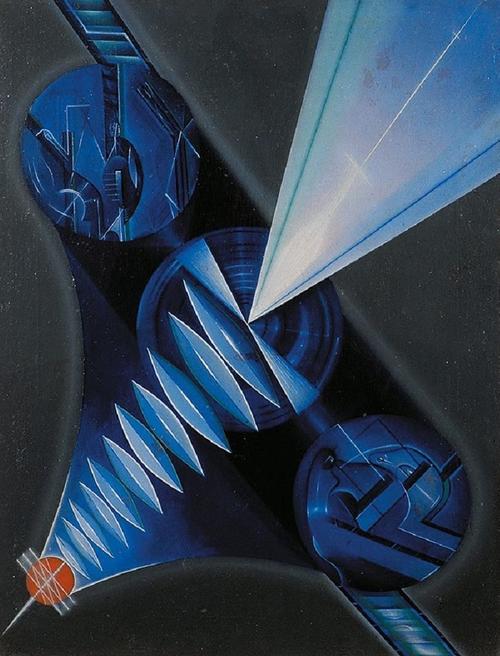The DFG research project "Energy: Key Concept of the Soviet Avant-Garde" examines the transfer movements of the concept of energy between the sciences and the arts at a historical point of highly condensed transdiscursive engagement with energy concepts.
The DFG research project investigates the historical transfer of the multifunctional concept of energy between the sciences and the arts in Soviet modernism. As a "key concept of the 21st century" (Gronau 2012:7) energy addresses not only political,economic and ecological challenges, but also cultural and artistic developments. However, the evolution of the polyfunctionality of the concept of energy remains unclear. This project aims to investigate this gap by examining the transfer movements of the concept of energy between the sciences and the arts during a period of intense transdisciplinary engagement with energetic concepts and a heightened virulence of energetic questions in early Soviet period.
In this time, an upheaval in the history of knowledge took place, characterized by a broad popularization of energetic debates, prepared by the sensitization for energetic problems in the thermodynamic 19th century. The project focuses on three central discursive interfaces: the migration of the concept of energy between labor sciences, organizational sciences, and aesthetic imaginations of body, space, and image, the role of energetic concepts of affect as a hinge between neurophysiology, psychology, and media poetics and ultimately the impact of the concept of energy mainly in philosophical and religious considerations on language in Slavic modernism during the early 20th century.
The project systematically examines three hypotheses and questions:
- The evolution of energy as a collective symbol of the 20th century and the knowledge of energy that circulates between disciplines.
- The reflective media of energetic concepts in the arts of the avant-garde and the resluting poetics and aesthetics of energy that emerged.
- The discursive flexibility of the concept of energy in the avant-garde and how poetic, scientific, and popular discourses on energy address the uncertainties of definition that arise here.

